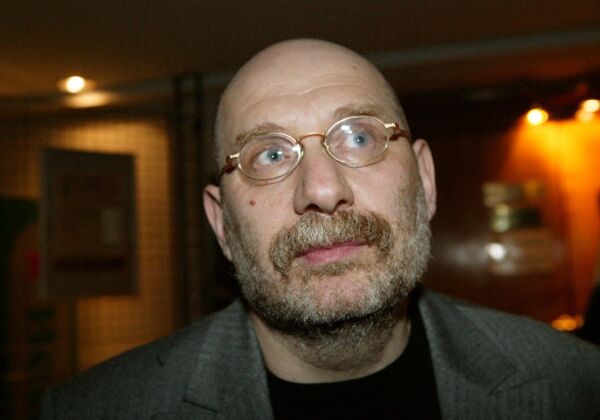A notorious Russian hacker known only as Hell launched an attack on bestselling writer Boris Akunin after the novelist got involved in vote fraud protests in Moscow.
Akunin, who made his name writing detective novels set in 19th-century imperial Russia, said he was “not surprised.”
The Georgian-born writer, whose real name is Grigory Chkhartishvili, has emerged as a key figure in protests over the country’s disputed parliamentary vote and was prominent at the biggest ever demonstration against the rule of Prime Minister Vladimir Putin earlier this month.
However, Akunin will not need to use his detective skills to try to find the culprit of this crime. An obscene blog posting on Akunin’s LiveJournal account concluded with a link to the blog of Hell, an infamous hacker who has already claimed credit for hacking into the e-mail accounts of anti-corruption activist Alexei Navalny.
Writing in internet slang, Hell said that he officially anointed the “hand writer” a “revolutionary.”
Russia’s social blogging platforms and liberal websites have suffered repeated cyber attacks since the December 4 election as they are being used to organize protests against alleged electoral fraud in favor of Putin’s ruling United Russia party.
“Every action causes a reaction; when you oppose somebody miserable and revolting, they react in a miserable and revolting fashion,” Akunin told RIA Novosti.
Ilya Dronov, director of LiveJournal Russia, said all posts and comments on Akunin’s blog would be restored.
The website of the independent election monitoring organization Golos came under sustained distributed denial-of-service attacks in the run-up to and on the day of the election itself. Golos employees have also complained that their e-mails were hacked.
The websites for radio station Ekho Moskvy, the weekly journal Bolshoi Gorod, the opposition New Times magazine, the political commentary site Slon.ru and the daily business paper Kommersant were also knocked offline on voting day in what observers claimed was an attempt to inhibit the publication of election violations.
Hell claimed in an interview in October he was acting on his own initiative when he hacked into Navalny’s e-mails, a statement that the opposition says is untrue.
“Hacking attacks are a type of censorship,” anti-regime blogger Oleg Kozyrev told RIA Novosti, adding that he suspected cyber criminals affiliated with the Kremlin of being behind the attack on Akunin’s blog.
He said that while such attacks put increasing pressure on web users, they “could not change the internet environment.”
“You cannot shut people’s mouths.”
This claim will probably strike a chord with many in Moscow today as more than 28,000 people have indicated on a Facebook page created for those who think the elections were unfair their intention to attend a new rally this Saturday.
Akunin himself is also taking part.




